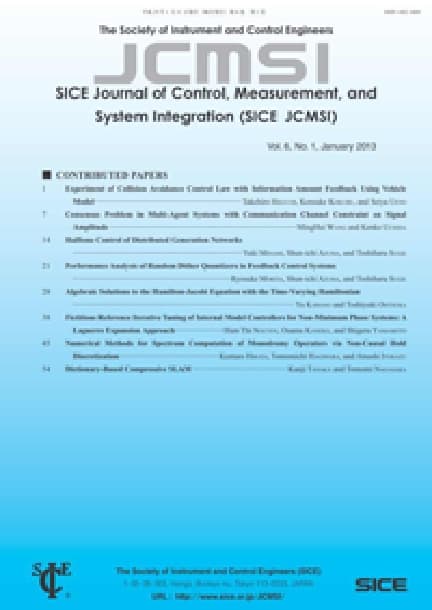A Study on Sequence Generation Powers of Small Cellular Automata
Naoki KAMIKAWA, Hiroshi UMEO
pp. 191-199
DOI:
10.9746/jcmsi.5.191抄録
A model of cellular automata (CA) is considered to be a well-studied non-linear model of complex systems in which an infinite one-dimensional array of finite state machines (cells) updates itself in a synchronous manner according to a uniform local rule. A sequence generation problem on the CAs has been studied and many scholars proposed several real-time sequence generation algorithms for a variety of non-regular sequences such as prime, Fibonacci, and {2n|n=1,2,3,...} sequences etc. The paper describes the sequence generation powers of CAs having a small number of states, focusing on the CAs with one, two, and three internal states, respectively. The authors enumerate all of the sequences generated by two-state CAs and present several non-regular sequences that can be generated in real-time by three-state CAs, but not generated by any two-state CA. It is shown that there exists a sequence generation gap among the powers of those small CAs.









